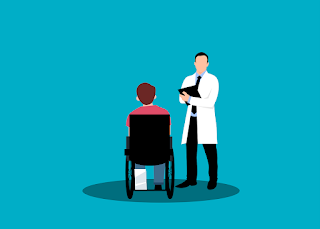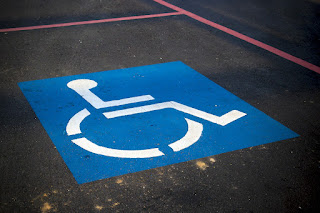Experienced and written by Joy F. S.©
It is fun to be loving. Someone may really need a seat for whatever reason. There are seats, but Oooops - they are all taken by energetic people. It is nice to give a seat to someone who may need it more.
When taking a client who needed assistance to a local museum, I needed an accessible parking spot. Her legal placard was on the rear-view mirror. As I was approaching the very last accessible parking space, a man who noticed the placard still hurried and took this space out of turn. I pulled behind, got out of my car and politely explained that I needed that spot for my client. He drove to a spot further away. Nice. It was fun catching and helping him understand that thoughtfulness wins!
Another incident involved me witnessing a woman parking in an accessible parking spot. She put a placard in the rear-view mirror. She had our same model of car, so it was perfect timing in that I approached her to discuss our cars and offer help! She said that she and others did not need help and was waiting for her children to finish shopping after sports practice. She used someone else’s placard for convenience. How thoughtless, unloving, inconsiderate, and selfish! One should not need to be policed or patrolled to be kind, loving, thoughtful, considerate, polite, and unselfish. People should use their conscience and enjoy the feeling of giving another person a happier, safer and better day.
A bicycle parked across an accessible ramp at an eatery? Despicable! Any guesses what I did? Yup! I reported it and the bike was moved. If they were not going to move it, I would have!
Put yourself in someone else’s situation. How would it feel if you needed an accessible parking spot that was taken by others who do not need it? Not too nice.
Grocery carts left in accessible parking spots?
That is…...s t r e t c h i n g it!
In a store, I saw two teens racing in motorized carts. I asked, “Do you need those carts?” They said “No.” I asked, “How would you feel if you needed them and they were all taken?” A loving gift of a “think-about-it-look” from me was given to them!
For those who can walk and run, great. Enjoy parking further away for your health, refreshment and being considerate of others needing accessible parking spots. Want extra bonuses? Calories gone, and feeling good for the other person! Imagine that!
Now more! Thoughtfulness goes beyond accessible parking. When on a walk, bike ride or at any indoor or outdoor place, people can clear and collect debris off of walkways and aisles for safety.
Keeping one's own home clear and clean inside and out is needed for family members, friends, clients, or anyone that may have needs. If possible - have ramps, accessible bars and higher toilets installed, double railings for stairs, door areas widened, furniture arranged for open space, an elevator and/or stair lift added, and whatever else! Being prepared is being protected.
When parking vehicles, do they have to be hanging over a sidewalk or accessible parking space? Thoughtfulness that makes it easier for others blesses all and blesses the person expressing it!
Being merciful, thoughtful, loving, considerate, caring and gentle is not bullying! Go for it!

.png)






